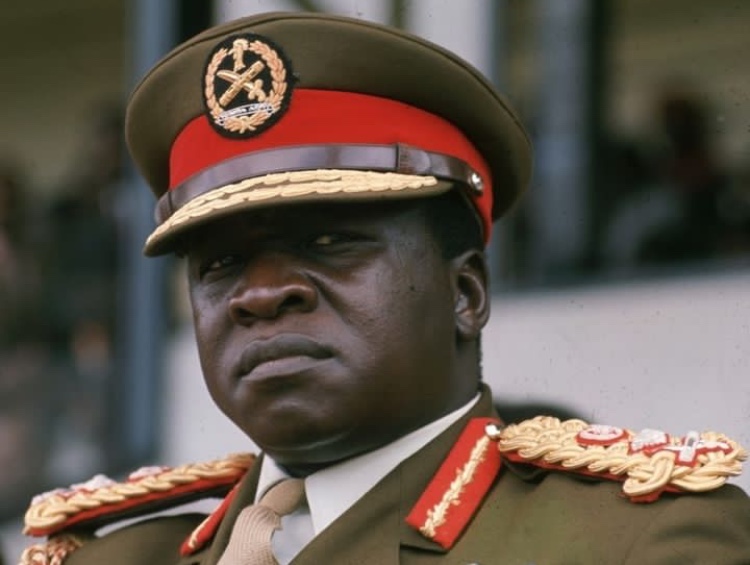The Butcher of Uganda


At the height of his dictatorship, Idi Amin was a name that evoked fear in people’s minds. He was known for his tyranny and reign that left many dead bodies in its wake.
Idi Amin’s exact birth date isn’t exactly known but it is estimated to be around 1924-1925. He was raised mostly by his mother because his parents split after he was born.
He didn’t receive much of a formal education and due to limited career options he joined the formal British regiment, the African rifles.
He started off as a cook before rising through the ranks and by 1949 he was sent to Somalia to deal with the Shifta rebels and to Kenya afterwards to stop the Mau Mau rebellion.
He soon gained a reputation for his cruelty and methods that were too extreme during interrogations. His career didn’t suffer any setbacks despite this ,instead he was promoted to the highest rank for a black African soldier, Effendi in 1959.
When Uganda gained independence in 1962, he became a close associate of the new prime minister Milton Obote. He was made a lieutenant in Obote’s army and was ordered to stop the cattle stealing in the north. He carried it out but left horrible atrocities in his wake, the British called for his punishment but Obote sent him to get further trained in military tactics.
When Amin returned in 1964 the army was falling apart and he restored it, for that he was promoted to deputy commander. A position he used to smuggle coffee, gold and ivory with prime minister Obote’s help. He was starting to enjoy his new found power.
In 1966 Obote dismissed the government and declared himself president, he also promoted Amin to Chief of the army and airforce, granting him more power. Conflict soon arose between both men and on January 25, 1971 , Amin staged a successful coup sending Obote into exile and he took over as president and then president for life in 1976.
He soon enacted policies that crumbled Uganda’s economy like expelling all Asians in 1972. He was known for his mood swings that switched from gentleness to tyranny.
He was also known for his brutality and was nicknamed the butcher of Uganda. 300,000 people were estimated to have been killed during his presidency.
The end of his rule came in 1978 when he attacked Tanzania. In response, President Julius Nyerere sent Tanzanian troops aided by Ugandan Nationalists that eventually ended Amin’s rule. He fled to Libya and then Saudi Arabia where he remained until his death in 2003. Sadly, he was never brought to justice for his crimes.
